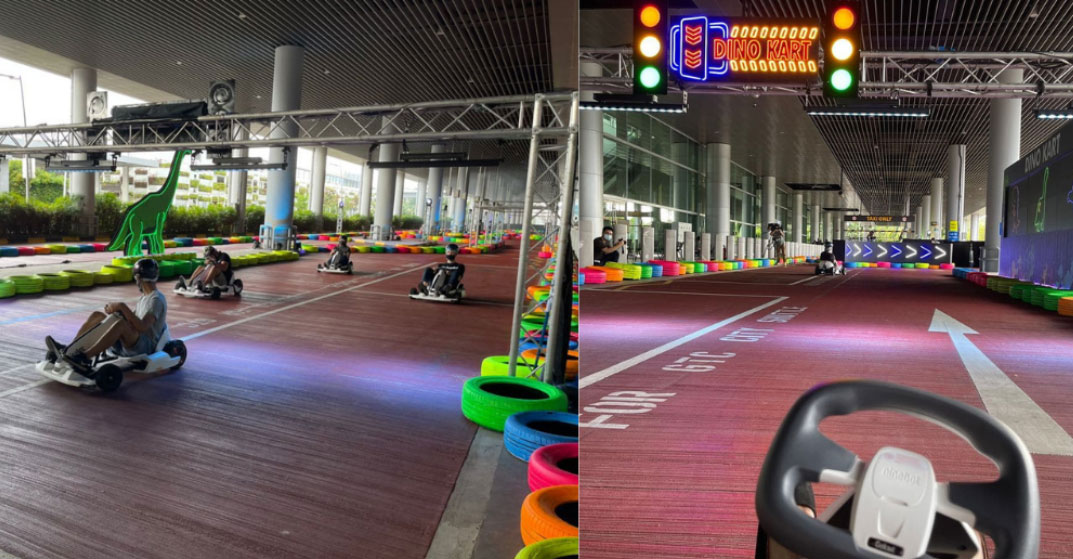
DIpil Das
ULI (Urban Land Institute) Asia Pacific hosted its “Experience the Experience” virtual conference on February 3–4, 2021. ULI is an international nonprofit organization that provides thought leadership on the responsible use of land to facilitate the development of sustainable communities worldwide. Coresight Research was an innovator sponsor of the “Experience the Experience” conference.
The event brought together more than 40 thought leaders from 12 countries across Asia Pacific, Europe and Americas to tackle the issues in retail, hospitality, technology and real estate. Deborah Weinswig, CEO and Founder of Coresight Research, hosted the “The Next Big Thing—Digital Transformation of Retail Real Estate” keynote session, and Echo Gong, Head of Greater China Advisory at Coresight Research, was a speaker in the “Technology: Enhancing the Experience” session.
In this report, we present eight key insights from the event, from retail innovation to consumer engagement.
 Chadatip Chutrakul, CEO of Siam Piwat (left), and Deborah Weinswig, CEO and Founder of Coresight Research (right)
Chadatip Chutrakul, CEO of Siam Piwat (left), and Deborah Weinswig, CEO and Founder of Coresight Research (right)
Source: ULI [/caption] 2. Retailers Must Consider Data Privacy in Analyzing Customer Data Gong emphasized that when retailers use technology to enhance the retail experience for consumers, they need to be sure to address data privacy concerns—even in China, where awareness of the issues is lower. In fact, the central government of China began promoting public consultation on personal information protection last year, and some regulations have already been launched at city level. For example, the government of Tianjin launched regulations to ban the collection of facial recognition information in order to protect personal privacy. Gong added that awareness of data privacy is increasing in China; last year, one customer sued technology giant Tencent for infringing their personal data and privacy rights. Robert Brockman, General Manager at beauty company Meiyume, explained that there is a very delicate balance to be struck when brands and retailers use consumer data. The biggest risk is losing customers’ trust, because once that happens, there will be a downward spiral for the company. To avoid this, Brockman said, companies should endeavor to be transparent with consumers in terms of how they collect data, what kinds of data are collected and what the company does with that data, giving customers the chance to opt out of sharing data. Ethan Chernofsky, Vice President of Marketing at technology company Placer.ai, said that the company remains focused on macro trends. In collating data to identify and analyze such trends, Placer.ai is vigilant about adhering to regulations, Chernofsky confirmed. Similarly, as a technology company specializing in artificial intelligence category management, Hivery must remain aware of the issues around data, said company Co-Founder Franki Chamaki. Although Hivery does not currently hold any personal data, it would certainly follow polices and set processes in place to ensure data protection should it collect such data in the future, he said. [caption id="attachment_123185" align="aligncenter" width="725"] Left to right, top to bottom: Ariel Shtarkman, Founder of Orca Capital; Echo Gong, Head of Greater China Advisory at Coresight Research; Robert Brockman, General Manager at Meiyume; Franki Chamaki, Co-Founder of Hivery; and Ethan Chernofsky, Vice President of Marketing at Placer.ai
Left to right, top to bottom: Ariel Shtarkman, Founder of Orca Capital; Echo Gong, Head of Greater China Advisory at Coresight Research; Robert Brockman, General Manager at Meiyume; Franki Chamaki, Co-Founder of Hivery; and Ethan Chernofsky, Vice President of Marketing at Placer.ai
Source: ULI [/caption] 3. Omnichannel Retail Provides a Seamless Shopping Experience There has been a rise in omnichannel retailing: Many retailers and landlords have adjusted their business model to remain relevant and competitive in the current environment by integrating online and offline. Omnichannel retail is different from multichannel retail. In the latter, online and offline channels typically operate as independent silos, while omnichannel retail offers a seamless experience between channels. Frasers eStore
Frasers eStore
Source: Frasers Property Retail [/caption] 4. The Tenant Mix in Malls Shifts to Experiential/Lifestyle Concept We have seen malls alter their tenant mix to become more robust in the current environment. In Singapore, malls are tapping experiential retail by adding more lifestyle events—such as cooking classes, as well as entertainment facilities—to their tenant mix, according to Eng Hwee Lim, CEO of Urban Redevelopment Authority Singapore. For example, customers can participate in cooking classes offered by gourmet food brand Providore at OUE Downtown and go karting and glamping at Changi Airport retail complex. [caption id="attachment_123187" align="aligncenter" width="725"] Go karting at Changi Airport
Go karting at Changi Airport
Source: Company website [/caption] [caption id="attachment_123188" align="aligncenter" width="725"] Cooking class at Providore Cooking Studio
Cooking class at Providore Cooking Studio
Source: Company website [/caption] 5. Food-Delivery Services and Cloud Kitchens See Tailwinds There has been sustained consumer demand for food delivery in Singapore as many workers continue to work from home, said Lim. Currently, the key players that provide food-delivery services in Singapore include Deliveroo, Foodpanda, GrabFood and WhyQ. Revenue in the online food-delivery segment in the country is projected to reach $541 million in 2021, with 16.7% year-over-year growth, according to Statista. In addition, operators of cloud kitchens (restaurants built around food delivery rather than sit-down service) have been rapidly expanding in Singapore: Prada Fall/Winter 2021 Menswear Show “Possible Feelings”—The Conversation
Prada Fall/Winter 2021 Menswear Show “Possible Feelings”—The Conversation
Source: Prada [/caption] 7. Local Appreciation Is a New Trend for Gen Z Amid Covid-19 stay-at-home measures and travel restrictions, Gen Z have a heightened appreciation for local culture and commerce, according to Barton. He gave the example of Chinese video blogger Li Ziqi, who emphasizes “living local” in her content: She shares videos about local life in her home village in Sichuan, including harvesting fruits from the farm. Her YouTube channel has 13 million followers and her account on Weibo (a Chinese social media platform) has 27 million followers, as of February 2021. This helps to drive great traffic and sales to her online store. According to Li Ziqi, her online store on Tmall achieved sales of over ¥190 million ($29 million) in the first quarter of 2020, having increased by 23 times year over year. [caption id="attachment_123190" align="aligncenter" width="726"] Li Ziqi’s flagship store on Tmall
Li Ziqi’s flagship store on Tmall
Source: Tmall [/caption] 8. Responsible Consumers Are on the Rise We will see more and more customers hold corporations to account. Barton cited data from Canadian-American magazine VICE, which found that around 80% of Gen Z said they will join organizations that fight for the issues they care about. Similary, over 62% of Gen Z believed businesses bear as much responsibility as the government for making a societal change, according to French advertising agency Havas Worldwide, Barton said. Barton highlighted that Gen Z’s preference for sustainability may bring more opportunities to retailers who pursue sustainability, as nearly 32% of Gen Z in the US would pay more for products that have least impact on the environment, according to management consulting firm McKinsey. This percentage is higher than the proportion of millennials, Gen X and boomers who reported the same. In order to align with consumer values, brands and retailers should look to make more of an impact with sustainability initiatives, such as by optimizing their design process and operations to reduce unnecessary waste.
ULI Aisa Pacific: Experience the Experience—Eight Key Insights
1. Digitalization Is Key to Weathering the Current Environment Weinswig highlighted that a number of retailers are taking the opportunity presented by Covid-19 to accelerate their digital transformation, as there has been a greater need to meet consumers where they are due to store closures. Chadatip Chutrakul, CEO of Siam Piwat, told Weinswig that the Bangkok-based retail and development company leveraged digitalization to drive sales in its shopping malls in Thailand post lockdowns. It is now seeing around 70% of the sales levels from 2019. The company has launched apps to enable tenants to sell, and customers to shop, online. Chutrakul confirmed that Siam Piwat is also planning to introduce a new loyalty program, which will enhance personalization and offer custom products. The company’s digitalization initiatives have helped it remain competitive in Thailand, which has been hit hard by the pandemic: According to Chutrakul, the retail sector in Thailand made a loss of $4.1 billion in 2020, having experienced a 4.5% year-over-year decline in revenue overall and with shopping malls seeing a much steeper decline of 44%. [caption id="attachment_123184" align="aligncenter" width="725"] Chadatip Chutrakul, CEO of Siam Piwat (left), and Deborah Weinswig, CEO and Founder of Coresight Research (right)
Chadatip Chutrakul, CEO of Siam Piwat (left), and Deborah Weinswig, CEO and Founder of Coresight Research (right) Source: ULI [/caption] 2. Retailers Must Consider Data Privacy in Analyzing Customer Data Gong emphasized that when retailers use technology to enhance the retail experience for consumers, they need to be sure to address data privacy concerns—even in China, where awareness of the issues is lower. In fact, the central government of China began promoting public consultation on personal information protection last year, and some regulations have already been launched at city level. For example, the government of Tianjin launched regulations to ban the collection of facial recognition information in order to protect personal privacy. Gong added that awareness of data privacy is increasing in China; last year, one customer sued technology giant Tencent for infringing their personal data and privacy rights. Robert Brockman, General Manager at beauty company Meiyume, explained that there is a very delicate balance to be struck when brands and retailers use consumer data. The biggest risk is losing customers’ trust, because once that happens, there will be a downward spiral for the company. To avoid this, Brockman said, companies should endeavor to be transparent with consumers in terms of how they collect data, what kinds of data are collected and what the company does with that data, giving customers the chance to opt out of sharing data. Ethan Chernofsky, Vice President of Marketing at technology company Placer.ai, said that the company remains focused on macro trends. In collating data to identify and analyze such trends, Placer.ai is vigilant about adhering to regulations, Chernofsky confirmed. Similarly, as a technology company specializing in artificial intelligence category management, Hivery must remain aware of the issues around data, said company Co-Founder Franki Chamaki. Although Hivery does not currently hold any personal data, it would certainly follow polices and set processes in place to ensure data protection should it collect such data in the future, he said. [caption id="attachment_123185" align="aligncenter" width="725"]
 Left to right, top to bottom: Ariel Shtarkman, Founder of Orca Capital; Echo Gong, Head of Greater China Advisory at Coresight Research; Robert Brockman, General Manager at Meiyume; Franki Chamaki, Co-Founder of Hivery; and Ethan Chernofsky, Vice President of Marketing at Placer.ai
Left to right, top to bottom: Ariel Shtarkman, Founder of Orca Capital; Echo Gong, Head of Greater China Advisory at Coresight Research; Robert Brockman, General Manager at Meiyume; Franki Chamaki, Co-Founder of Hivery; and Ethan Chernofsky, Vice President of Marketing at Placer.ai Source: ULI [/caption] 3. Omnichannel Retail Provides a Seamless Shopping Experience There has been a rise in omnichannel retailing: Many retailers and landlords have adjusted their business model to remain relevant and competitive in the current environment by integrating online and offline. Omnichannel retail is different from multichannel retail. In the latter, online and offline channels typically operate as independent silos, while omnichannel retail offers a seamless experience between channels.
- Singapore-based mall owner Fraser Property Retail launched its new e-commerce marketplace, Frasers eStore, in December 2020, to provide a seamless store-to-door experience to serve shoppers. Through Frasers eStore, consumers can browse and purchase products from tenants across all 14 malls of Frasers Property Retail.
- Love Bonito,a female fashion brand tailored specifically to Asian shoppers, launched its LBCommunity+ program last year, which allows in-store and online purchases tied into single accounts. Customers can earn points, redeem rewards and enjoy special perks and experiences through the program.
 Frasers eStore
Frasers eStore Source: Frasers Property Retail [/caption] 4. The Tenant Mix in Malls Shifts to Experiential/Lifestyle Concept We have seen malls alter their tenant mix to become more robust in the current environment. In Singapore, malls are tapping experiential retail by adding more lifestyle events—such as cooking classes, as well as entertainment facilities—to their tenant mix, according to Eng Hwee Lim, CEO of Urban Redevelopment Authority Singapore. For example, customers can participate in cooking classes offered by gourmet food brand Providore at OUE Downtown and go karting and glamping at Changi Airport retail complex. [caption id="attachment_123187" align="aligncenter" width="725"]
 Go karting at Changi Airport
Go karting at Changi Airport Source: Company website [/caption] [caption id="attachment_123188" align="aligncenter" width="725"]
 Cooking class at Providore Cooking Studio
Cooking class at Providore Cooking Studio Source: Company website [/caption] 5. Food-Delivery Services and Cloud Kitchens See Tailwinds There has been sustained consumer demand for food delivery in Singapore as many workers continue to work from home, said Lim. Currently, the key players that provide food-delivery services in Singapore include Deliveroo, Foodpanda, GrabFood and WhyQ. Revenue in the online food-delivery segment in the country is projected to reach $541 million in 2021, with 16.7% year-over-year growth, according to Statista. In addition, operators of cloud kitchens (restaurants built around food delivery rather than sit-down service) have been rapidly expanding in Singapore:
- GrabFood opened its second cloud kitchen in October 2020, following the launch of its first GrabKitchen in January 2020.
- Since entering the Singapore market in June 2019, Smart City Kitchens has set up five kitchens.
 Prada Fall/Winter 2021 Menswear Show “Possible Feelings”—The Conversation
Prada Fall/Winter 2021 Menswear Show “Possible Feelings”—The Conversation Source: Prada [/caption] 7. Local Appreciation Is a New Trend for Gen Z Amid Covid-19 stay-at-home measures and travel restrictions, Gen Z have a heightened appreciation for local culture and commerce, according to Barton. He gave the example of Chinese video blogger Li Ziqi, who emphasizes “living local” in her content: She shares videos about local life in her home village in Sichuan, including harvesting fruits from the farm. Her YouTube channel has 13 million followers and her account on Weibo (a Chinese social media platform) has 27 million followers, as of February 2021. This helps to drive great traffic and sales to her online store. According to Li Ziqi, her online store on Tmall achieved sales of over ¥190 million ($29 million) in the first quarter of 2020, having increased by 23 times year over year. [caption id="attachment_123190" align="aligncenter" width="726"]
 Li Ziqi’s flagship store on Tmall
Li Ziqi’s flagship store on Tmall Source: Tmall [/caption] 8. Responsible Consumers Are on the Rise We will see more and more customers hold corporations to account. Barton cited data from Canadian-American magazine VICE, which found that around 80% of Gen Z said they will join organizations that fight for the issues they care about. Similary, over 62% of Gen Z believed businesses bear as much responsibility as the government for making a societal change, according to French advertising agency Havas Worldwide, Barton said. Barton highlighted that Gen Z’s preference for sustainability may bring more opportunities to retailers who pursue sustainability, as nearly 32% of Gen Z in the US would pay more for products that have least impact on the environment, according to management consulting firm McKinsey. This percentage is higher than the proportion of millennials, Gen X and boomers who reported the same. In order to align with consumer values, brands and retailers should look to make more of an impact with sustainability initiatives, such as by optimizing their design process and operations to reduce unnecessary waste.